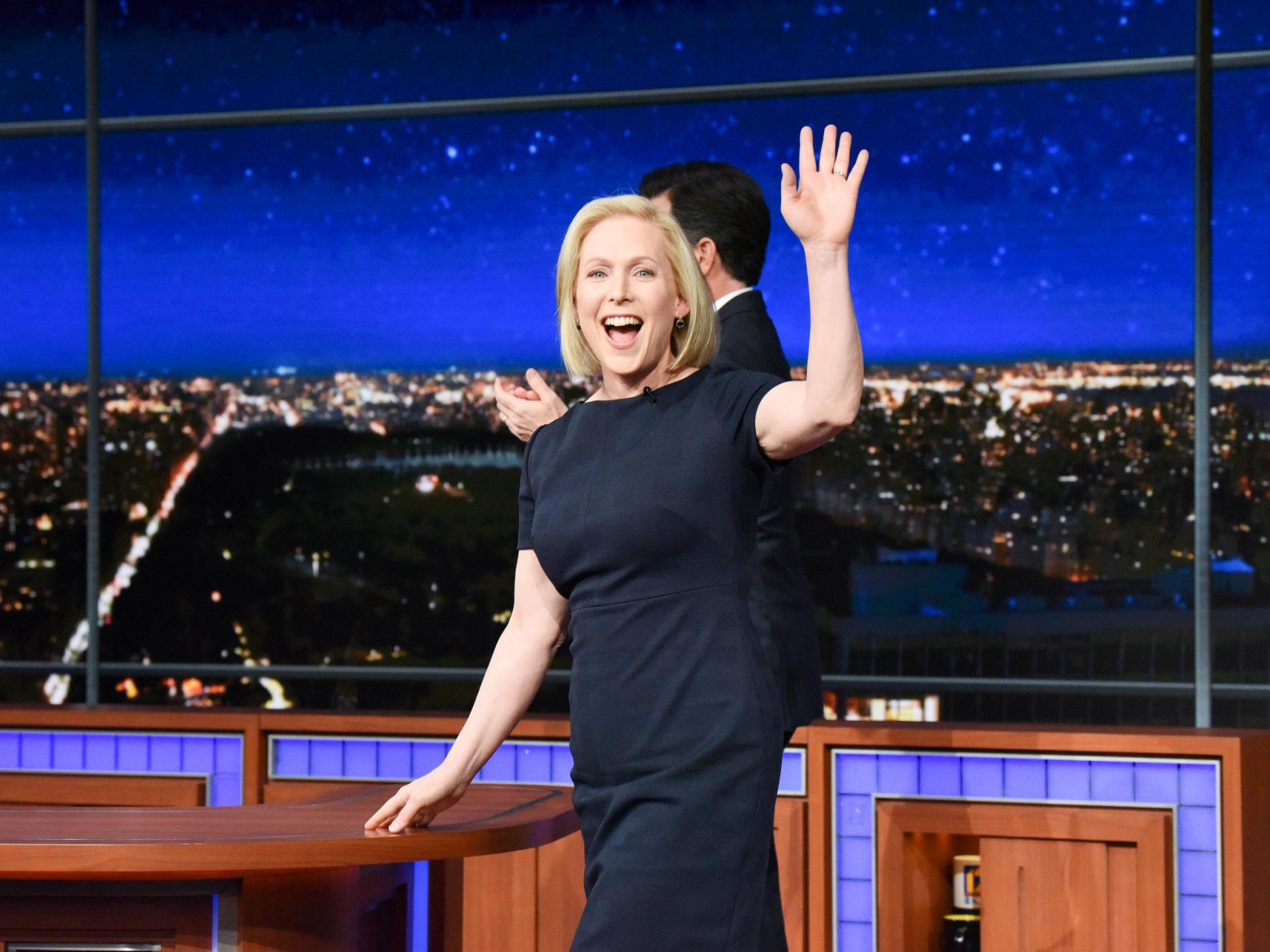Kirsten Gillibrand wants to give everyone 600 'Democracy Dollars' – and here's why that's a truly terrible idea
Introducing money like this to election cycles could lead to a nightmare of 'dark money' and increased populism

2020 contender Kirsten Gillibrand, currently polling negligibly in a crowded presidential primary field, has released a policy proposal that’s making waves today: give every eligible citizen a taxpayer-subsidized 600 “Democracy Dollars” to donate towards political candidates, with $200 each designated for the presidential race, the Senate, and the House of Representatives. This, she says, is a move towards “clean elections,” because “every American’s voice should be as loud as the Koch Brothers.’”
Let’s examine that. Very few Americans give more than $200 towards presidential candidates (with a maximum allowable donation of $2,700). And the ones who do tend to be disproportionately richer. But Gillibrand’s proposal is a terrible way to level the field and to undo the problems that money in politics creates.
Why? First, it would simply multiply the amount of money in politics by an order of magnitude, with effects that wouldn’t be good for the political system at large, but would be good for ad buyers and PR flacks and political operatives. It was reported in 2017 that election watchdog Open Secrets put the final total pricetag of America’s 2016 political races for the presidency, Senate, and House of Representatives at roughly $6.5bn.
Let’s imagine that, per Gillibrand’s proposal, every candidate running in a presidential election cycle opted into her scheme to swear off all money besides the $600 every eligible voter can get to dole out to preferred candidates. Think about the sheer amount of money this would pump into the system. Fellow 2020 candidate Andrew Yang proposed the same idea several months ago, but at $100 per voter. At Gillibrand’s proposed level, it would be a bonanza for all the wrong people.
There are roughly 235 million eligible voters in the United States. Say roughly half of them bothered to use the $600 (about 60 per cent of Americans vote in presidential years and about 40 per cent in midterm years). That means, conservatively, politicians would be looking at a little more than $70bn a cycle. What Gillibrand would have accomplished, then, if her initiative to deal with money in politics were hugely successful, would be to multiply the $6.5bn cesspit of corruption and division that is the long race for the White House by more than ten. I somehow doubt Washington’s lobbyist and political operative class hates this idea.
What would happen next? First, candidates might still take all kinds of “dark money” on the side. And in order to even try to combat this, the government would have a compliance and regulatory nightmare no campaign finance agency is prepared to enforce.
If they did move to enforce it, that could yield cries of bias. Disagreements would go to the courts to decide, scratching off the scab of the wound to democratic legitimacy that the Bush vs. Gore Supreme Court case represents. At worst, we’d face a climate of conspiracy and disagreement over who really won elections, every election. Are the Koch brothers' donations more destructive than democratic legitimacy at large is beneficial?
Gillibrand’s plan also raises a host of political and logistical questions. One feature of the proposal stipulates that $200 of the Democracy Dollars can be spent on a Senate race, but only within a voter’s own state race. Another $200 is set aside for House races, but that’s not limited to spending on a race for a voter’s own Congressional district. This seems incoherent as a matter of principle in a representative republic, though it could be tactical. The Gillibrand campaign did not respond to request for comment as of this writing. Also, what happens in special elections?
Finally, with taxpayer-funded money taken from citizens and given back to them earmarked for spending on campaign donations, citizens have no reason to think too hard about how they spend. In a moment when America is led by a demagogue and is suffering through a political crisis wrought by what is most often called “populism,” is it wise to create an incentive structure like this?
Sure, there are skewing effects of the political power of the billionaire class, though Democrats have their Michael Bloombergs and Tom Steyers for the Republican Koch brothers and Sheldon Adelsons, who supposedly have so much more sinister influence in Washington. But with everybody handing out money that they can’t hand out elsewhere, will politicians get more populist or less? Will voters gravitate towards visionary leaders making hard decisions about confounding policy issues? Or will they pick whoever tells the most flattering lies in the most entertaining way? Because we know what that looks like. It’s ugly, and it’s orange.
Perhaps this "Democracy Dollars" idea is misnamed.
Join our commenting forum
Join thought-provoking conversations, follow other Independent readers and see their replies
Comments
Bookmark popover
Removed from bookmarks